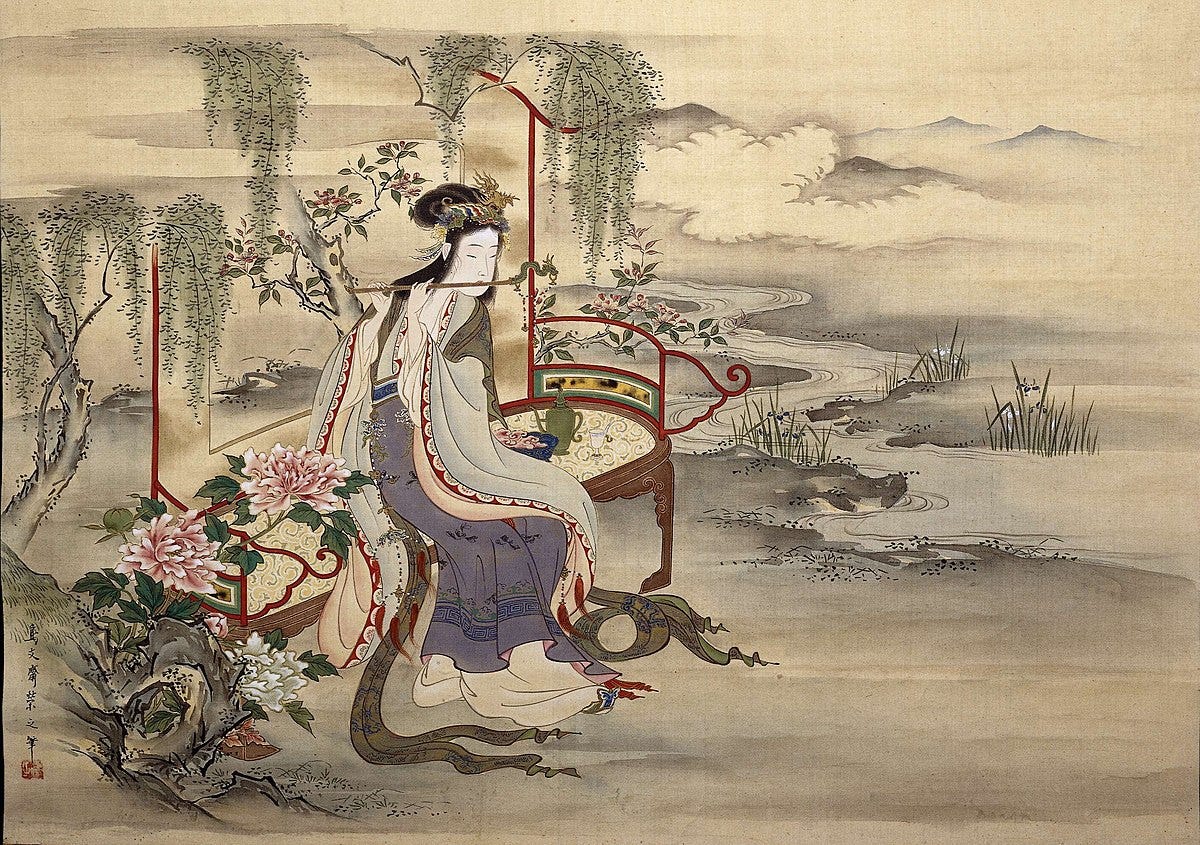
Golden Robes Du Qiu Don’t love the golden robes of power, Love the time you have when young. At blooming, pluck the ready flower, Don’t pluck dry twigs when blossom’s gone. 杜秋 金缕衣 劝君莫惜金缕衣,劝君须惜少年时。 有花堪折直须折,莫待无花空折枝。
Du Qiu (often written as Du Qiuniang, fl. 807-820) was a sometime maid, concubine, and governess to the imperial family. This is the only poem of hers to survive. It is a classic carpe diem poem, with the usual overtones of sauciness.
Here are the obvious matching poems from the English tradition:
To the Virgins, to Make Much of Time Robert Herrick (1591-1674) Gather ye rose-buds while ye may, Old Time is still a-flying; And this same flower that smiles today Tomorrow will be dying. The glorious lamp of heaven, the sun, The higher he’s a-getting, The sooner will his race be run, And nearer he’s to setting. That age is best which is the first, When youth and blood are warmer; But being spent, the worse, and worst Times still succeed the former. Then be not coy, but use your time, And while ye may, go marry; For having lost but once your prime, You may forever tarry.
To his Coy Mistress Andrew Marvell (1621-78) Had we but world enough, and time, This coyness, lady, were no crime. We would sit down, and think which way To walk, and pass our long love’s day. Thou by the Indian Ganges’ side Should’st rubies find: I by the tide Of Humber would complain. I would Love you ten years before the Flood: And you should, if you please, refuse Till the conversion of the Jews My vegetable love should grow Vaster then empires, and more slow. An hundred years should go to praise Thine eyes, and on thy forehead gaze. Two hundred to adore each breast. But thirty thousand to the rest. An age at least to every part, And the last age should show your heart. For, lady, you deserve this state; Nor would I love at lower rate. But at my back I always hear Time’s wingèd chariot hurrying near: And yonder all before us lie Deserts of vast eternity. Thy beauty shall no more be found; Nor, in thy marble vault, shall sound My echoing song: then worms shall try That long preserved virginity: And your quaint honor turn to dust, And into ashes all my lust. The grave’s a fine and private place, But none I think do there embrace. Now therefore, while the youthful hue Sits on thy skin like morning dew, And while thy willing soul transpires At every pore with instant fires, Now let us sport us while we may; And now, like amorous birds of prey, Rather at once our time devour, Than languish in his slow-chapped power. Let us roll all our strength, and all Our sweetness, up into one ball, And tear our pleasures with rough strife Thorough the iron gates of life. Thus, though we cannot make our sun Stand still, yet we will make him run.



Interestingly I have 花开堪折直须折 in my big book of Chinese idioms, which I assume must come from this poem as it's so similar - I wonder why it changed slightly?